Drone Strike Kills Iran-Backed Militia In Baghdad
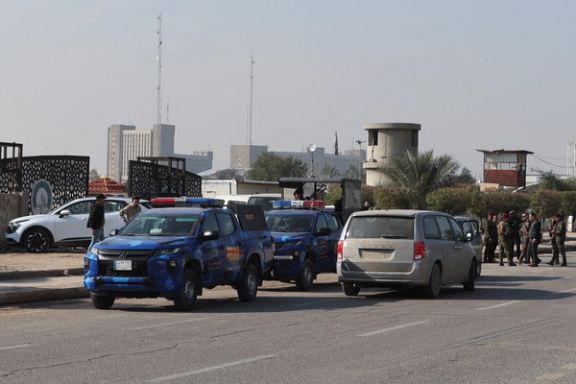
At least four fighters were killed and six others injured in a drone strike targeting an Iran-backed militia headquarters in eastern Baghdad on Thursday.

At least four fighters were killed and six others injured in a drone strike targeting an Iran-backed militia headquarters in eastern Baghdad on Thursday.
Reuters received information from police and security sources, but no further details were provided regarding the party responsible for the attack.
Field sources have indicated that a high-ranking commander of the Iran-backed armed group Harakat Hezbollah al-Nujaba (HHN), along with his assistant, was killed in the attack.
However, social media reports suggest that the targeted facility was Hashd al-Shaabi's logistics base in Baghdad and that US drones carried out the strike.
If so, it would be a rare retaliation for over 100 attacks since the Gaza war broke out in October, Iran's proxies targeting US facilities in Iraq and Syria, and now the Red Sea shipping route, in retaliation for US support of Israel's right to defend itself.
While Iran has not directly engaged in the conflict, it has utilized its network of armed groups to target both Israel and US forces in the region. Iran, a staunch supporter of Hamas, has issued threats to the United States, warning that if the attacks on Gaza persist, they may impact US interests.
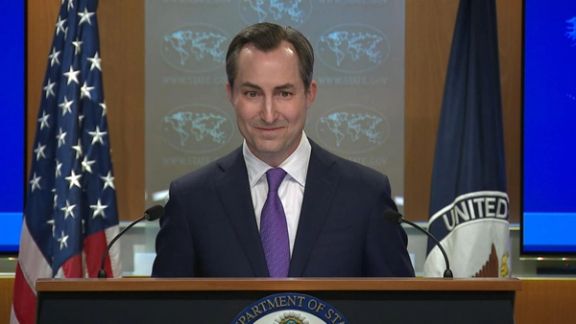
US State Department spokesman Matthew Miller dismissed suggestions of US or Israeli involvement in Wednesday's deadly Iran blasts as "ridiculous".
He stressed that there is no credible reason to believe Israel played a role in the incident and conveyed condolences to the victims, cautioning against further escalation.
“We have no reason to believe that Israel was involved in this explosion,” he said.
In the aftermath of Iran's leaders vowing revenge, a senior administration official, in a subsequent briefing with reporters, noted that the attack exhibited similarities to previous actions by ISIS. No group has as yet claimed responsibility.
Iran is amidst a complex situation, facing potential adversaries that include exile groups, militant organizations, and state actors.
The blast unfolded in southern Iranian city of Kerman at the gravesite of former IRGC Quds Force Commander Qassem Soleimani on Wednesday, claiming the lives of at least 95 people and injuring more on the fourth anniversary of his US drone strike killing. The event occurred following a suspected Israeli attack in Lebanon, resulting in the death of Saleh al-Arouri, the deputy political leader of the Palestinian designated terror group Hamas.
While Israel has undertaken operations in Iran related to its nuclear program, they have typically involved targeted assassinations and targeted military and nuclear infrastructure. Large-scale attacks resulting in civilian casualties in Shiite-majority Iran have been historically attributed to Sunni extremist groups, such as the Islamic State group, although not specifically in relatively peaceful regions like Kerman.

Washington extended protection for Mike Pompeo and Brian Hook, officials in Donald Trump’s administration, over the Islamic Republic’s threats, AP reported on Wednesday.
Last month, the State Department informed Congress that the threats against Pompeo, former secretary of state, and Hook, former special envoy for Iran, are still “serious and credible,” which justify the renewal of their protection programs.
According to the Associated Press, the notifications to Congress regarding the extension were signed by Deputy Secretary of State for Management Richard Verma.
This is the 13th and 16th time that the State Department has extended protection to Pompeo and Hook, respectively, since they left office. The 24-hour security measures to protect the former officials cost the US government more than $2 million per month.
Pompeo and Hook were among the staunch supporters of President Donald Trump’s “maximum pressure” sanctions campaign against Tehran.
The Islamic Republic has time and again threatened revenge against former US officials for the killing of Qasem Soleimani, the Iranian regime’s top military and intelligence operator in the Middle East who died in a US drone strike in January 2020 in Iraq.
In February 2023, Amirali Hajizadeh, the head of the Revolutionary Guards aerospace force, repeated the threat to avenge the US killing of Soleimani.
“God willing, we are looking to kill Trump. Pompeo ... and military commanders who issued the order (to kill Soleimani) should be killed,” Hajizadeh said.
Another former official with government protection is John Bolton, UN ambassador during President George Bush and National Security Advisor during Trump. The Justice Department revealed in August 2022 that an operative of Iran’s Revolutionary Guard tried to hire a hitman in the US to kill Bolton.
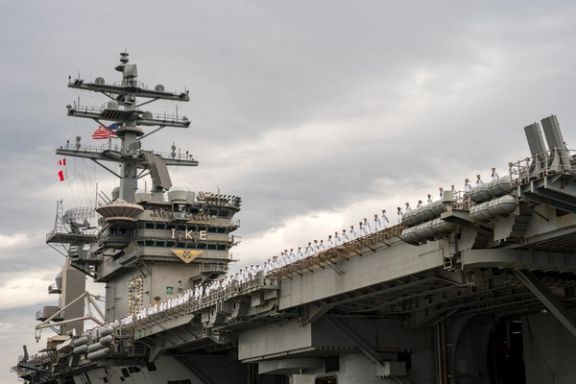
The Red Sea got closer to war Wednesday, as the UN Security Council asked Houthis to halt attacks on ships and the Iran-backed group exchanged threats with the US military.
Hours before the UNSC met, 12 countries led by the United States issued a joint statement to warn the Houthis of what awaits them if they continue their “illegal, unacceptable, and profoundly destabilizing” attacks in the Red Sea.
“We call for the immediate end of these illegal attacks and release of unlawfully detained vessels and crews,” read the statement. “The Houthis will bear the responsibility of the consequences should they continue to threaten lives, the global economy, and free flow of commerce in the region’s critical waterways.”
The statement was notably reposted on X by the US Central Command, making it look like a ‘final warning’ from the force most likely to follow through on the threat.
It comes amid reports that the Biden administration may be considering direct strikes on the rebels and the US military readying options for it, in case the attacks continue.
Signatories of the statement include Germany, Japan and the UK. The only country from the Middle East to have signed the statement is Bahrain, which hosts the US Fifth Naval Fleet. The UAE and Saudi Arabia are the conspicuous absentees, weary, perhaps, of potential repercussions of getting on the wrong side of the Houthis and their sponsor Iran.
Both have maintained their belligerent tone so far.
“The Yemeni Armed Forces warn the American enemy or any other party that any American aggression will not go unanswered or unpunished,” said Houthi military spokesperson Yahya Sarea in a televised briefing Wednesday, reiterating their will to target Israel-bound vessels until “necessary supplies of food and medicine” are delivered to the people besieged in Gaza.
Houthis –funded, guided, armed by Iran– have targeted more than 30 commercial vessels in the Red Sea (and a few American warships even) since Israel began its onslaught on Gaza. As a result, 18 shipping companies have re-routed away from the Red Sea, according to a UN maritime agency report, and “more than $200 billion in trade” has been diverted from the crucial route, which leads to the Suez Canal and from there the Mediterranean Sea.
As political as the current crisis is, the decisive factor pushing the US and others towards an unwanted war with Iran and its proxies may very well be the economic burden.
According to a CNBC report Wednesday, since the start of 2024, rates for freight from Asia to northern Europe and North America have increased around 100% and 60% respectively. The hike in the cost of shipping will push up the price of consumer goods –or the ‘cost of living’, which scares most governments.
It is partly the reason why President Biden has allowed Iran to sell oil in spite of sanctions: to keep US fuel prices low as he bids for reelection later in the year. But his policy seems to have had the opposite effect: emboldening the Iranian regime and its proxies to effectively close the Red Sea and disrupt global trade.
Even China is alarmed by the disruption of maritime trade.
“China is concerned about the repeated incidents of attacks and seizures of merchant ships in the Red Sea,” said the Chinese representative at the UN Security Council Wednesday. “China also urges the parties to respect and guarantee the freedom of navigation for all countries in the waters.”
More notably, however, the Chinese mission highlighted the link between Houthi attacks and the ongoing Israeli onslaught on Gaza.
“The current tensions in the Red Sea are one of the manifestations of the spillover effects of the conflict in Gaza,” said Geng Shuang, deputy permanent representative of China to the UN, tacitly countering Israel’s argument at the same session that the Houthi threat in the Red Sea is not Israel's problem.
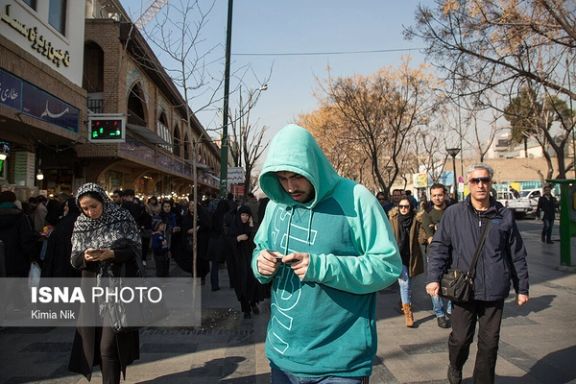
Iranians, predominantly dependent on mobile data, are outraged by the government's recent approval of price hikes, with many alleging corruption.
“Where there is monopoly, collusion takes shape between [operators] and the government, and they scam the people in any way that they wish, same as in the case of car manufacturers, internet taxis, pharmaceutical import companies, and many other businesses that get special authorizations from the government,” a reader of Khabar Online wrote in response to the Tehran-based news website’s enquiry from readers.
“Salaries increase by 18 percent, which will be implemented next year, but prices increase by 34 percent and more. I will just remain silent and leave [the response] this to God,” another reader answered.
Around 90 percent of Iranians use mobile internet rather than broadband. According to government figures, there are 10.6 million broadband and 84.1 million mobile internet subscribers.
Operators had petitioned the government to increase their broadband and mobile tariffs by 100 percent, the government claimed, but have only been allowed an increase of 34 percent.
Media, however, have reported that operators have increased the prices much more. According to Fararu news website, the cost of data packages sold by Hamrah Avval and Irancell, two of the country’s top mobile operators, has gone up by up to 156 percent. A 50 GB package sold by Hamrah Avval for 1,190,000 rials ($2.38) previously, Fararu said, has gone up to 3m rials ($6).
Most criticisms are directed at President Ebrahim Raisi who during his inauguration in 2021 declared that easy access to the Internet is a right for all and promised free internet for low-income families.
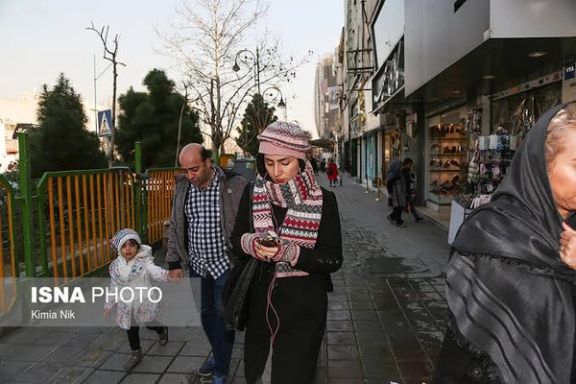
The ministry announced this week that the government will give the heads of households in the three lowest income groups ten gigabytes of free mobile internet for accessing domestic websites (five gigabytes for international traffic) every four months for which they need to register with the government.
The free internet can only be used on one phone registered to the head of the household.
Even the ultra-hardliner government supporter Kayhan newspaper has admitted that the quality of internet services available to Iranians has caused public discontent.
Considering the low speed of the internet and operators’ “abnormal request” to the government to increase data package tariffs by 100 percent, Kayhan wrote, the government must resolve the problem of the slow internet speed before allowing the tariffs to rise.
Users are also forced to purchase costly Virtual Private Networks (VPNs) and anti-filtering software to access blocked websites and major social media platforms and messaging applications such as Instagram, and WhatsApp, which are extremely popular with Iranians and used by many large and home-based business.
Speaking to Fararu news website Sunday, the former head of Iranian parliament's National Security and Foreign Relations Committee, Heshmatollah Falahatpisheh, said the government’s decision to increase the cost of internet could potentially entail an increase in the cost of VPNs. He alleged that there are people with influence in the government who benefit from these increases.
Falahatpisheh argued that restricting people’s access to the Internet, which forces them to seek ways to circumvent filtering, benefits those who are granted VPN sales permits by the government.
“Why are some people granted the permit to break the filters if some sites and content on the Internet pose a danger to the country's security and are blocked?” he asked.
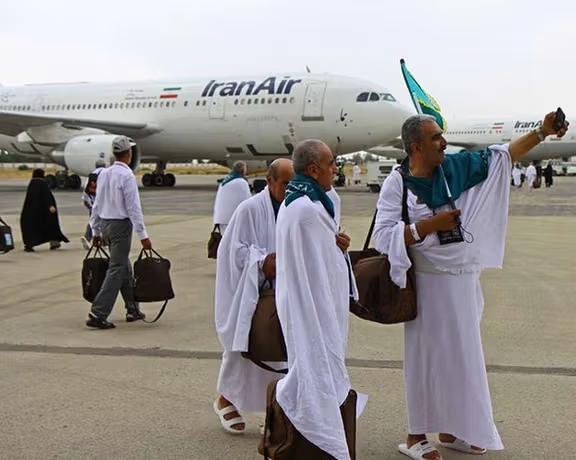
Flights to Saudi for Iranian pilgrims traveling to Umrah have been canceled amid ‘technical disagreements’ between the two nations.
The anticipated journey was scheduled to commence on Wednesday morning, marking the first pilgrimage group after a 9-year diplomatic hiatus between Tehran and Riyadh.
However, a "technical disagreement," as described by the minister of culture, led to the cancellation of the flight.
The National Airline of Iran (Homa) had previously announced plans for two daily flights for Umrah operations, preparing to dispatch 30,000 Iranian pilgrims to Saudi Arabia.
Hesam Qorbanali, spokesperson for Homa Company, stated on Wednesday that the Islamic Republic's aircraft could not proceed to Saudi Arabia and Jeddah Airport due to the "non-receipt of the necessary final permit."
Following the announcement, Mohammad Mehdi Esmaeili, the Minister of Culture, attributed the delay in Umrah flights to a "technical disagreement" between the airlines of the two countries, reassuring that the issue is "not serious."
Authorities of the Islamic Republic had earlier outlined the travel plans for Iranian pilgrims, scheduled from January 3 through 11 airports in the country.
Since the suspension of Umrah in 2015 and the emergence of disagreements between Tehran and Riyadh, approximately six million Iranians have been awaiting the resumption of Umrah. The minister of culture had previously promised that before the summer of 2024, around 400,000 people would undertake the Umrah pilgrimage.
The relations between the Islamic Republic and Saudi Arabia have been strained over the years, with heightened tensions due to Iran's support for Shia paramilitary groups, notably in Yemen.
However, after a seven-year diplomatic hiatus, Tehran and Riyadh reached an agreement in February of the previous year to resume diplomatic relations. The agreement, mediated by China during the visit of then Supreme National Security Council Secretary Ali Shamkhani to Beijing, paved the way for a subsequent trip by Ebrahim Raisi, the President of the Islamic Republic, to Saudi Arabia.